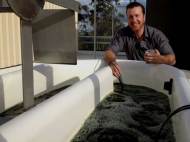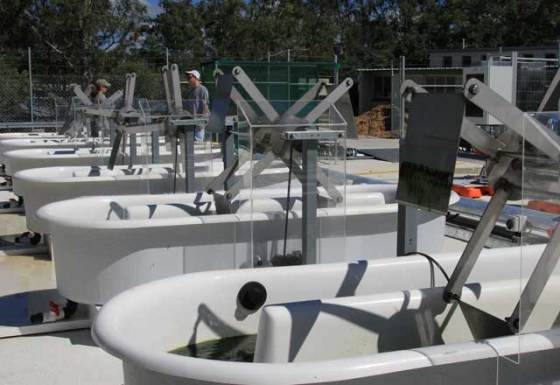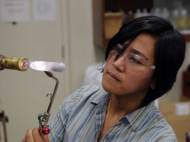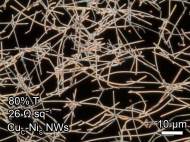Making biofuel from native Australian microscopic algae
 Collaboration between researchers at the University of Queensland (UQ) with researchers at Germany’s Bielefeld University and Karlsruhe Institute of Technology resulted in identification of a fast-growing microscopic algae that could be used in production of cheaper and more efficient biofuel. Newly tested algae species native to Australia provide real hope for the development of commercially viable biofuels.
Collaboration between researchers at the University of Queensland (UQ) with researchers at Germany’s Bielefeld University and Karlsruhe Institute of Technology resulted in identification of a fast-growing microscopic algae that could be used in production of cheaper and more efficient biofuel. Newly tested algae species native to Australia provide real hope for the development of commercially viable biofuels.
For many years, algae have been grown as a source of healthy foods, for aquaculture and waste-water treatment. In recent years, algae oil has become the focus of an emerging biofuel industry. However, production of algae-based fuel was expensive, and commercially competitive alternative for petroleum oil had not yet been achieved in Australia or overseas.
In previous years, researchers have been searching for oil-rich algae, but usually these algae are not fast-growing and they are tastier to predators – like microscopic scoops of ice cream. With the integration of new technologies, a broad range of algae can be turned into bio-crude oil that can be processed in existing oil refineries.
“A major new frontier is in the biology and developing new strains – and we’ve already made significant advances through the identification of high-efficiency strains that have really stable growth, as well as being resistant to predators and temperature fluctuations”, said Evan Stephens, UQ Solar Biofuels Research Centre manager.
The research team has identified hundreds of native species of microscopic algae from both freshwater and saltwater environments around Australia. These species have been tested against thousands of environmental conditions in the laboratory, and algae species with the best features were singled out. The researchers are putting the best algae performers on a pilot processing plant which was opened in Brisbane in April.
“While we know that we can produce algae oil that is even higher quality than standard petroleum sources, we are working to increase the efficiency of production with the ultimate aim being to compete with fossil fuels dollar for dollar”, said Stephens.
According to UQ researchers, Australian climate as well as land is very suitable for algae farming. It could potentially become important oil exporter like the Middle East by devoting just one percent of land to algae farms. Still, researchers need to overcome important challenges in science and engineering in order to achieve the high efficiency needed to compete with conventional petroleum.











Good post.
Biofuel can be made from care-free growth plants like Agave and Opuntia. Both can be grown in wastelands especially in developing countries. Both are regenerative and CAM Plants.
Dr.A.Jagadeesh Nellore(AP),India